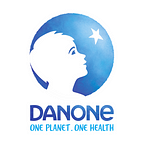With more than 14,000 employees and 21 plants, Indonesia is one of Danone’s biggest markets.
History
Danone settled in Indonesia in 1998 by signing a strategic alliance with Aqua, an Indonesian brand of bottled water launched in 1973. With this partnership, the brand strengthened its market position becoming the largest producer of bottled mineral water in Indonesia. In 2005, Mizone was launched in Indonesia, as a roll-out of the Chinese success story.
Danone implemented its Baby Nutrition division in Indonesia in 2007, with the acquisition of Numico and therefore of the brands Sari Husada (an Indonesian brand born in 1954) and PT NIS (launched in Indonesia in 1987 thanks to the import of products from Netherlands). With the launch of SGM in 1965, Sari Husada was a pioneer in the development and production of infant formula in Indonesia.
Today
With China, Indonesia forms a bridgehead for our growth in the Asia-Pacific region. Thanks to our Aqua and Mizone brands, we occupy the top spot in the Indonesian waters market.
But we’re leaders in early life nutrition as well, with our SGM and Sari Husada brands holding 40% of the market. Sales for these two categories alone come to over €1 billion, and Aqua’s total volume of bottled water is the largest distributed by Danone anywhere in the world.
Over the past decade, economic growth has halved the number of Indonesians living in extreme poverty, but malnutrition, climate change and natural disasters are a threat to food safety and better nutrition for all. Against this backdrop, providing healthy, affordable food and beverages for as many people as possible is a daily challenge, but we’re working to meet it by creating an offer that meets local needs.
By pursuing these efforts in close partnership with local associations, health professionals and communities, we’re solidifying Danone’s positions and promoting sustainable growth in Indonesia.
